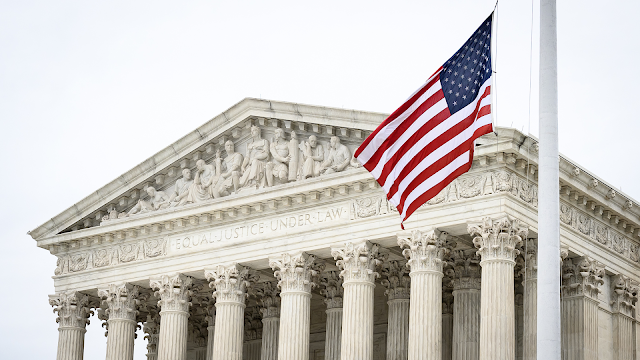The Supreme Court dismissed an appeal by a group of Republican-led states to intervene in a case challenging the "public charge" immigration policy, imposed during the Donald Trump era and whose version the Joe Biden administration stopped implementing, returning to the 1999 rule.
The court heard arguments from the plaintiffs' and the government's lawyers in February and appeared poised to issue a ruling, but on Wednesday it released an unsigned, one-sentence opinion dismissing the case. This leaves intact a lower court ruling in favor of President Biden's administration that states had no right to intervene.
The decision represents a blow to the conservative states that asked the high court to intervene. The opinion was led by Chief Justice John Roberts and joined by Justices Clarence Thomas, Samuel Alito, and Neil Gorsuch.
The controversy stems from an August 2019 regulation issued by the Trump administration, dubbed the "public charge" rule, which made it more difficult for immigrants who relied on government assistance programs like Medicaid, subsidized housing, and food stamps to obtain legal status. The rule applied to individuals seeking to enter or remain in the United States, specifically those in the process of obtaining permanent legal status, also known as a green card.
In this dispute, different voices were heard, one of them being that of the Secretary of Homeland Security, Alejandro Mayorkas, who stated that: "The 2019 public charge rule is not consistent with our nation's values," and added that "Under this proposed rule, we will return to the historical understanding of the term 'public charge.' And individuals will not be penalized for choosing to access health benefits and other supplemental government services available to them.".
Migrant advocacy groups say the biggest impact of the rule was to scare immigrants, leading them to reject or not apply for public benefits for fear that these will hinder their processes to obtain permanent residency.
Finally, at the beginning of the month, the U.S. immigration service announced an update to its website related to public charge information. “The update can help with additional information to reduce confusion and fear that could prevent immigrants and their families, including U.S. citizens and their children, from accessing important government services that are available,” said U.S. Citizenship and Immigration Services (USCIS).
The 1999 public charge rule establishes guidelines for determining a key ground of inadmissibility that resolves whether or not a foreign national can receive benefits, including lawful permanent residence.
News report based on information from: Univision and CNN.

